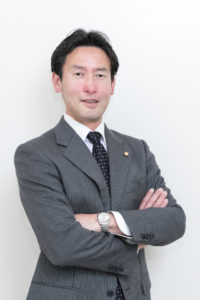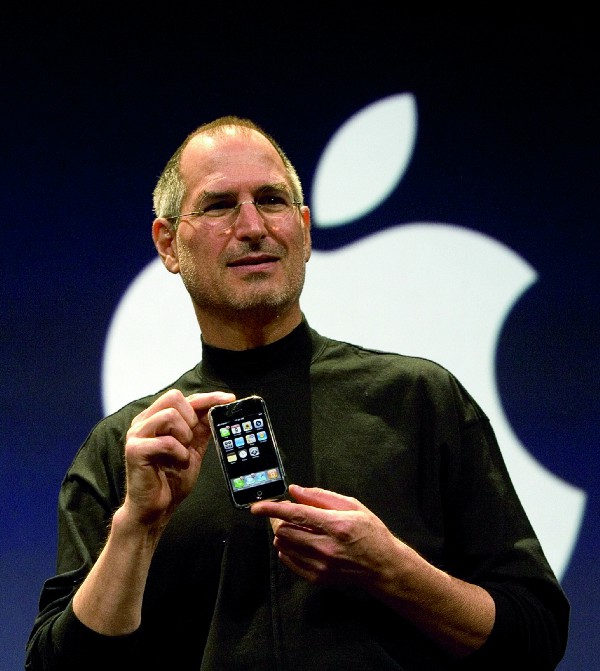The Swiss watchmaker Swatch’s effort to acquire the trademark for “SWATCH ONE MORE THING” has run in to opposition from Apple, which argues the phrase ‘one more thing’ is closely associated with the software giant’s founder Steve Jobs. During Apple press events, Jobs was known to precede new product announcements and introductions with the phrase “there is one more thing” in his keynote addresses. The “one more thing” prelude became a fixture at Apple events.
SWATCH ONE MORE THING
The watchmaker has taken out an international trademark on the phrase “SWATCH ONE MORE THING”. The trademark was registered under IR no. 1261460 with the World Intellectual Property Organization (WIPO) in May 22, 2015 by designating more than 40 countries including Japan and various goods in class 9, 14 as follows.
Class09 Apparatus for recording, transmission and reproduction of sound or images; electronic payment processing apparatus, apparatus for processing cashless payment transactions; magnetic recording media, sound recording disks; compact disks, DVDs and other digital recording media; apparatus enabling the playing of compressed sound files (MP3); calculating machines and data processing equipment, software; game software for mobile telephones, for computers and for digital personal stereos; electronic game software for mobile telephones, for computers and for digital personal stereos; computers, portable computers, handheld computers, mobile computers, personal computers, wrist computers, electronic tablets and computerized and mobile devices, digital personal stereos, mobile telephones and new-generation mobile telephones featuring greater functionality (smartphones); telecommunication apparatus and instruments; apparatus for recording, transmission, reproduction of sound or images, particularly mobile telephones and new-generation mobile telephones incorporating greater functionality (smartphones); hand-held electronic apparatus for accessing the Internet and sending, receiving, recording and storing short messages, electronic messages, telephone calls, faxes, video conferences, images, sound, music, text and other digital data; handheld electronic apparatus for wireless receiving, storing and transmitting of data or messages; handheld electronic apparatus for monitoring and organizing personal information; handheld electronic apparatus for global positioning [GPS] and displaying maps and transport information; handheld electronic devices for detecting, monitoring, storing, surveillance and transmitting data relating to the user activity, namely position, itinerary, distance traveled, heart rate; covers for computers, portable and mobile telephones; optical apparatus and instruments, particularly spectacles, sunglasses, magnifying glasses; cases for spectacles, magnifying glasses and sunglasses; batteries and cells for computers and electronic and chronometric apparatus.
Class14 Precious metals and their alloys and goods made of these materials or coated therewith included in this class, namely figurines, trophies; jewelry, namely rings, earrings, cufflinks, bracelets, charms, brooches, chains, necklaces, tie pins, tie clips, jewelry caskets, jewelry cases; precious stones, semi-precious stones; timepieces and chronometric instruments, namely chronometers, chronographs, clocks, watches, wristwatches, wall clocks, alarm clocks as well as parts and accessories for the aforesaid goods, namely hands, anchors, pendulums, barrels, watch cases, watch straps, watch dials, clockworks, watch chains, movements for timepieces, watch springs, watch glasses, presentation cases for timepieces, cases for timepieces.
Apple filed an opposition
Immediately after the JPO admitted granting protection to the trademark, Apple filed an opposition in May 19, 2015 on the grounds that the trademark violates main paragraph of Article 3(1) as well as 4(1)(vii), 4(1)(x), 4(1)(xv), and 4(1)(xix) of the Japan Trademark Law.
Main paragraph of Article 3(1)
Main paragraph of Article 3(1) demands applicant to have used or intend to genuinely use applied mark. Where examiners have “reasonable doubts” about the use of a trademark or intention to use a trademark by the applicant on the designated goods, the examiners shall reject the application based on the ground. Likewise, the trademark is subject to cancellation if opposition board has convinced of such reasonable doubts during opposition procedure.
Apple claimed that Swatch filed the trademark with a malicious intention to hinder the business of opponent since Swatch has been aware of the phrase ‘one more thing’ used by Steve Jobs. Besides, Swatch has not used the trademark. If so, it is obvious that Swatch will not intend to use the mark on designated goods.
Article 4(1)(vii)
Article 4(1)(vii) prohibits a trademark which is likely to cause damage to public order or morality from registering.
Apple claimed that the trademark should be subject to cancellation based on the ground as long as Swatch, having been aware of the phrase ‘one more thing’ used by Steve Jobs, filed the trademark with a malicious intention to hinder the business of opponent.
Article 4(1)(x)
Article 4(1)(x) prohibits to register a trademark which is identical with, or similar to, other entity’s well-known mark over goods or services closely related with the entity’s business.
Apple claimed that the dominant portion of trademark “SWATCH ONE MORE THING” is similar to Steve Jobs’ catchphrase ‘one more thing’, since the phrase has become famous among relevant consumers as admitted in administrative decision of the Turkish Patent Office. Besides, designated goods in class 9 are closely related with Apple products.
Article 4(1)(xv)
Article 4(1)(xv) prohibits to register a trademark which is likely to cause confusion with a business of other entity.
Apple cited administrative decision of the Turkish Patent Office on the claim as well and alleged that there exists a likelihood of confusion between the applied trademark and Steve Jobs’ catchphrase ‘one more thing’ in due course.
Article 4(1)(xix)
Article 4(1)(xix) prohibits to register a trademark which is identical with, or similar to, other entity’s famous mark, if such trademark is aimed for unfair purposes, e.g. gaining unfair profits, or causing damage to the entity.
Apple disputed on Swatch’s unfair purpose to free-ride prestigious fame bestowed on the Steve Jobs’ catchphrase as well as to harm or depreciate the value of goodwill by means of trademark dilution.
Opposition Board decision
Opposition Board dismissed Apple’s arguments.
Firstly, the Board denied famousness of the phrase ‘One more thing’ as a source indicator of Apple partly because the phrase can be commonly used in daily conversation and Apple failed to produce evidences demonstrating the phrase is used as a source indicator other than verbal presentation by Steve Jobs.
Secondly, in the assessment of trademark similarity, the Board considered “SWATCH” plays an important and dominative role as a source indicator by taking into consideration of the facts that SWATCH becomes famous among consumers in connection with goods of class 9 and less distinctiveness of the phrase ‘ONE MORE THING”. If so, it should be concluded that because of presence or absence of “SWATCH” both marks are distinctively dissimilar from visual, sound and conceptual point of view.
Based on the foregoing, the Board decided the opposed mark is not objectionable under Article 4(1)(x), (xv) and (xix) of the Trademark Law due to less recognized awareness of the phrase ‘One more thing’ as a source indicator of Apple and dissimilarity of both marks. The Board also considered that previous trademark disputes between the parties would not suffice to decide Swatch had a malicious intention to hinder the business of opponent. Therefore, the opposition is groundless to conclude the opposed mark is likely to cause damage to public order or morality under Article 4(1)(vii).
Likewise, it is insufficient to conclude that Swatch lacks an intention to use the opposed mark not-too-distant future given the designated goods in class 9, 14 are related to wristwatches to a certain extent (Main paragraph of Article 3(1)).
[Opposition case number: 2016-685012, Decision date: April 20, 2017]
 MASAKI MIKAMI, Attorney at IP LAW – Founder of MARKS IP LAW FIRM
MASAKI MIKAMI, Attorney at IP LAW – Founder of MARKS IP LAW FIRM


Be the first to comment on "Apple failed to block Swatch’s attempt to acquire the trademark for Steve Jobs’ catchphrase ‘one more thing’"